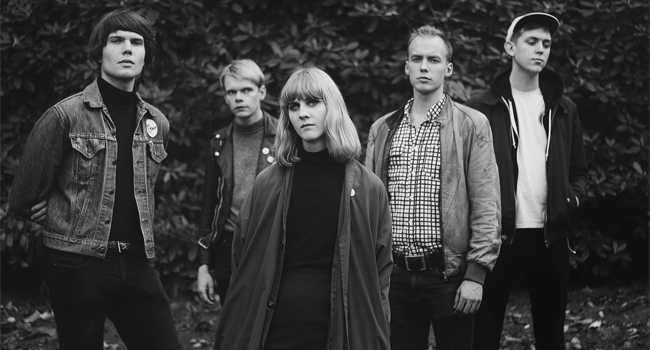Wearing a hickory stripe engineer’s cap and a Snowville Creamery T-shirt (a souvenir of his native Athens, Ohio), Adam Remnant is strumming a weathered banjo clawhammer style to the tune of the old Appalachian Folk standard, “Cripple Creek.” The plinking and plunking of the melody captivates but his long gaze seems to span the plains states. There’s an old oaken timbre to his voice, a hint of weary raspiness in an otherwise earnest inflection. There is, as in all of his compositions, a sense of hope. It may be unsteadily legged, maybe against all likelihood—but there’s always hope.
Remnant’s previous band Southeast Engine is an anomaly of the blogging era. Not one of the outfit’s five albums has been reviewed negatively. From home critic to brand name, everyone apparently has something nice to say. The AV Club called them “The little band that could,” Pitchfork said of Coming to Terms With Gravity, “Solid if not wholly compelling Americana in the just-left-of-traditional mold.” It’s hard to understand how this is the case, only that if the band is anything like Adam, it’s difficult finding something to dislike.

In another sense, the band’s story is not anomalistic at all. Despite hundreds of tour dates (some opening for larger acts), widespread critical recognition, festival slots, a comprehensive Internet presence and a deal with Misra Records, Southeast Engine never seized the big time. Adam has a degree in Language Arts and English Education from Ohio University and has worked as a teacher, though he’s been teaching only guitar lessons in recent years. “One of the hardest things about teaching,” he says “Is trying to convince a group of people to do something they don’t want to do, all day.” His demeanor is noticeably patient, weighing his words before speaking. That patience, coupled with a keen sense of audience and genuine kindness has helped guarantee him a loyal fan base for more than a decade.
Remnant has played the Nelsonville Music Festival in his native Hocking Hills every year since its inception in 2005, sometimes on the main stage with Southeast Engine, but always in the little wooden frontier house labelled “No-Fi.” The name is not ironic—artists touting nothing but their voice and their instrument play to a schoolhouse cabin with log benches and a cast iron stove. By tradition, Adam plows through pared down versions of Southeast Engine songs on guitar and banjo, a handful of bandmates backing him up unplugged—but it may also be where he got the notion to go solo.
“I’ve always been a little solo,” he says of the format.At Nelsonville this year the sweltering cabin was packed to the brim with fans on benches. They leaned against the walls, peaking in from windows, huddling in a circle around the rear door and front porch to snag a glimpse, visually or aurally. The audience was absolutely silent, sweating patiently while he navigated a mix of Southeast Engine and new solo material, most of which had been written in the past year. This is the first year he’s toured alone.
http://vimeo.com/70811533
The artist has a fondness for Depression-era folk songs, and is fascinated by the past—what’s being repeated and how we live with the weight of what has been. Southeast Engine’s Canary is a concept album following a single family in 1930s Appalachia. Many of the songs he’s written recently have historical settings and yet the themes are timeless. One in particular, “California,” could be about a Dust Bowl migrant or a starstruck coverage writer. Equal to his temporal fascination is his obsession with place, especially how that place becomes altered in time, acquiring a story all of its own. An integral moment for Canary came one afternoon in Athens when a gentleman, one of Remnant’s neighbors, knocked on his door to tell him the story of the house he owned—the man’s father and uncles had built it from clay block during the Depression.
There are several recurring themes to Remnant’s oeuvre, one being, naturally, the road. Adam is 32 and married with a 2-year-old daughter. “Everyone has to make decisions—but me and my wife, it was something we wanted to do.” They’re factors that might have once been considered inhibitive but serve now as the functioning model for many established artists. Until asked, he’s tacit on the subject—not out of avoidance but seemingly more out of assuredness.
“Being a musician (means) being an entertainer, it’s not food on the table,” he says, “Music is one of those things people want and I think they need it, but it’s not imminent. You don’t imminently need music like you need food or to pay that bill because you’re going to get reported to that credit bureau.” Like most musicians, Remnant has been a man of many hats.
“It’s becoming a double occupational world,” Adam says, “The job that will and the job that won’t pay your bills. It keeps you grounded.”
And because there’s no company to pay him for what he loves doing, in his own lyrics, “With what little know-how, I’m doing my best now/Making it up as I go” (“She Has a Way of Finding Me Out”). Adam thrives in the midst of uncertainty. At one point during a recent set in Oak Park, he waxed on the days of his post-college “existential crisis,” asking in a familiar voice, “Why are we here?” “What is this life about?” Even he can’t keep a straight face and the audience falls into chuckles with him. Rather than dismiss the naïveté and uncertainty of that time, he envies its joy, its spirit of wonder.
Compositionally, Remnant is wont to let an inkling run wild. “I want songs to be premonitions. I’ll just kind of start writing and see what jumps out at me.” Partly, that means collecting stories and setting them to song, it also means mythologizing. Somehow, no matter how tall the narrative winds, it always hearkens back to his own experience. He’s fascinated by the idea of a folk song—one that transcends boundaries to become embedded in the vocabulary of a land, of a people. One of his songs, “Susannah” serves as accidental parallel to the folk standard “Oh, Susanna.” It started with him writing to a girl of the same namesake, and by the time he arrived at the chorus (“Susannah don’t you cry / Susannah be my bride”) found himself, as if by instinct drawing from the Stephen Foster tune, “For I come from Alabama, with a banjo on my knee.” Adam fills me in on the history of the song, which was originally written as a minstrel tune. An incredibly racist relic of the mid-19th Century, it was traditionally sung in black face for comedic effect.
We riff over the nonsensicality of the lyric sheet (intended as lampoon at the time) “It rained all night the day I left/The weather it was dry,” “The sun so hot I froze to death,” “I shut my eyes to hold my breath” this in addition to the physiological difficulty of walking or even riding a horse with a banjo on one’s knee. That’s what fascinates Remnant. “I thought it’d be interesting to use that nonsensical imagery in a way that was useful and meaningful—in a poetic way.” Songwriting in private, he’s indulging every whim, “But when I’m in a live situation, I’m thinking what’s the lowest hanging fruit for the audience to grab […] If you’re experienced as an artist it’s a completely different life than the people you’re playing to.” In the case of “Cripple Creek” and Carter Family standard “Worried Man,” that answer is “I’ll play the banjo!” He references a Kim Gordon quote, “People go to shows to watch someone who believes in their self.”
Remnant is a proud handyman. “I build cabinets for my own home—I love it, I look at it, I put stuff in it—it’s so rewarding,” though he draws a line between “creation” and “work”: “When you build someone else a cabinet it’s like, ‘Well, when do I get paid?’” He cites Karl Marx’s concept of alienation, “So much of us work jobs we don’t believe in,” he says, “Being a musician is not a cure to that.” In the end he concedes, in his salt-of-the-earth type of way, that the balance of home, work, family and passion is just not simple.
Remnant calls himself a homebody and tours only a fraction of the amount he did with Southeast Engine, “Touring is simultaneously like vacation and the hardest work you’ve ever done. But there are moment when you’re still living large.” Complimentary microwaved breakfast sandwiches, swimming pools, captive audiences—to name a few. He has maybe half a dozen solo originals to speak of so far, “The ones I play are the ones that kind of float to the top as best for a live setting.” With no physical record and no plans for studio time until potentially the fall, for now, Remnant’s is truly folk music.



